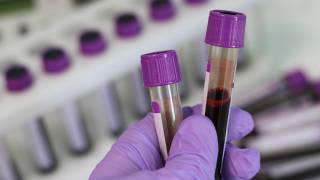3-antigen HBV Vaccine Offers Broad Immune Response

Massachusetts-based VBI Vaccines Inc. announced today that new data from a follow-up analysis of a subset of participants from the pivotal Phase 3 study of the Company's 3-antigen prophylactic hepatitis B (HBV) vaccine known in the USA as PreHevbrio™.
Timo Vesikari, M.D., Ph.D., Professor Emeritus and Director of the Nordic Vaccine Research Network in Finland, and principal investigator of the PROTECT and CONSTANT Phase 3 clinical studies, highlighted data from his investigator-initiated analysis that evaluated the duration of immune response approximately 2.5 years after completion of vaccination.
In the follow-up analysis, participants in PROTECT who received VBI's 3-antigen HBV vaccine had 5.5-fold higher mean anti-HBs titers (GMC: 1382.9 mIU/mL vs. 251.4 mIU/mL) and a higher seroprotection rate (SPR: 88.1% vs. 72.4%) compared to those who received Engerix-B, another vaccine.
Additionally, 72.9% of participants who received VBI's 3-antigen HBV vaccine retained anti-HBs titers ≥ 100 mIU/mL compared to 32.6% of those who received Engerix-B.
VBI's hepatitis B vaccine is the only 3-antigen hepatitis B vaccine, comprised of the three surface antigens of the hepatitis B virus – S, pre-S1, and pre-S2.
It is approved for use in the U.S. for adults and in the European Union/European Economic Area, United Kingdom, and Israel.
Hepatitis B is one of the world's most significant infectious disease threats, with more than 290 million people infected globally, says the U.S. CDC.
In addition, an estimated 887,000 people die each year from complications of chronic HBV.
The CDC says most hepatitis viruses can be prevented by vaccination.
However, the five hepatitis viruses – hepatitis A, hepatitis B, hepatitis C, hepatitis D, and hepatitis E – are distinct and can spread differently.
HBV is transmitted by contact with contaminated blood, blood products, and other body fluids.
Examples of exposures associated with a transmission that travelers may encounter include poor infection control during medical or dental procedures, receipt of blood products, injection drug use, tattooing or acupuncture, and unprotected sex.
HBV infection is the leading cause of liver disease, and with current treatments, it is challenging to cure, with many patients developing liver cancers.
Additional hepatitis vaccine news is posted at PrecisionVaccinations.com/Hepatitis.
Note: VBI's press release was manually curated for mobile readership.
Our Trust Standards: Medical Advisory Committee























